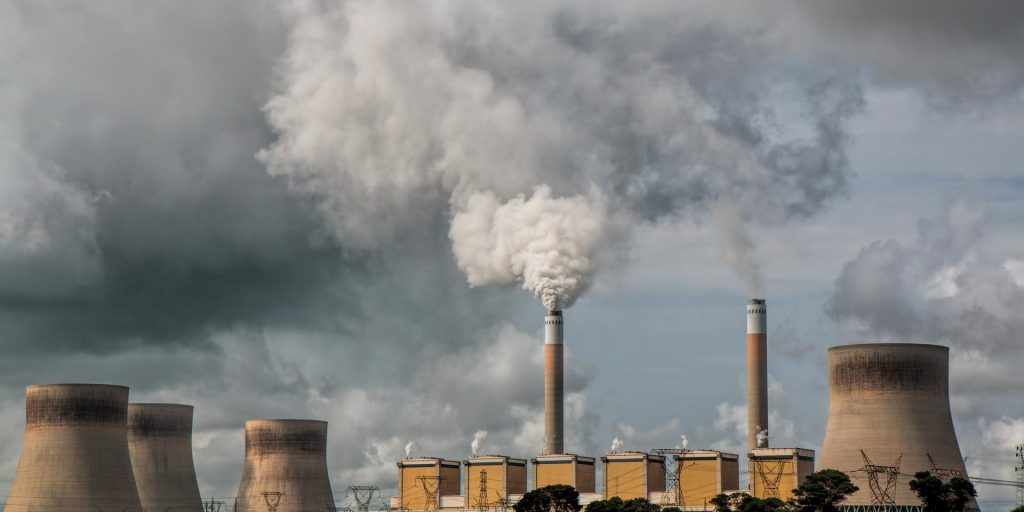Supreme Court ruling on EPA greenhouse gas regulation will impact cities
On Thursday, the U.S. Supreme Court handcuffed the Environmental Protection Agency (EPA)’s regulation power by ruling that the federal government cannot use the 1970 Clean Air Act to restrict greenhouse gas emissions from power plants.
By a 6-3 decision, the decision is notable for city and county administrators because greenhouse gas emissions aren’t contained within jurisdictional boundaries, and municipalities are on the front line in the fight against climate change, according to advocacy organizations representing local governments.
“Local leaders are on the front lines of battling the climate crisis—but we can’t do it alone,” reads a joint statement issued by Clarence Anthony, CEO and executive director of The National League of Cities (NLC) and Tom Cochran, CEO and executive director of The United States Conference of Mayors (USCM). The ruling “represents a major step back in our fight to keep our communities safe from the devastating effects of the climate crisis, including stronger and more frequent natural disasters, extreme temperatures, negative public health effects, and more. Many cities, towns and villages will continue to work to reduce greenhouse gas emissions, but today’s decision leaves us working uphill against this threat.”
In a documented opinion justifying the majority view of the Supreme Court, Chief Justice John Roberts said the EPA doesn’t have the power to regulate greenhouse gas emissions to the scope outlined by the Clean Power Plan.
“A decision of such magnitude and consequence rests with Congress itself, or an agency acting pursuant to a clear delegation from that representative body,” he wrote.
Technically, the ruling rolls back the EPA’s 2015 Clean Power Plan, which never actually went into effect. It was signed into law under the Obama Administration to curb “carbon dioxide emissions from existing coal- and natural-gas fired plants,” according to the high court’s ruling, but stayed by executive order in 2017 by former president Donald Trump, simultaneous with the nation’s withdrawal from the Paris Agreement. Mechanically speaking, the Supreme Court’s decision reverses a U.S. Court of Appeals for the District of Columbia Circuit ruling that struck down the Trump administration’s repeal of the Clean Power Plan. More abstractly, it draws a line in the sand defining the limits of federal oversight of greenhouse gas emissions, and that, in turn, will impact the effectiveness of local ordinances.
Given the immense impact one power plant can have on the environment, local governments rely on federal regulation to control greenhouse gas emission and support their own initiatives.
“The concentration of people, activity, and infrastructure in cities makes them uniquely valuable economically, but cities are also affected by a concentration of adverse climate impacts, such as increased heat-related deaths, dirtier air, damaged and disappearing coastlines, longer droughts and other strains on water quantity and quality, increased wildfire risk, and increasingly frequent and severe storms,” argues an amicus brief submitted jointly by The National League of Cites (NLC) and The United States Conference of Mayors (USCM) in West Virginia v. EPA supporting the Clean Power Plan, the case that was overturned by the Supreme Court. An amicus brief is a document providing insight or commentary on a particular case submitted by a third party organization that has relevant expertise.
In the face of climate change, an overwhelming majority of cities across the United States recognize and are actively working to reduce their carbon footprint. In 2019, the brief highlights that 60 percent of American cities “launched or significantly expanded an initiative to address climate change, such as a green vehicle procurement program or renewable energy policy.” And in 2020, cities took 859 separate climate-related actions to adapt to a rapidly changing environment.
Ahead of the Supreme Court’s ruling Thursday, “244 U.S. mayors representing over 52 million Americans to ask EPA not to repeal the Clean Power Plan, explaining ‘our local efforts to address climate change are highly sensitive to national policies like the Clean Power Plan, which shape markets, steer state action, and have large direct impacts on nationwide emissions.’”
By not upholding the authority of the EPA, the court’s decision undermines the efforts of American mayors, who are already fighting an uphill battle.
In many states, for example, cities and counties “have been the only level of government to develop strategies to adapt to climate change. For example, cities in Mississippi, Ohio, Oklahoma, and Georgia have all engaged in climate adaptation planning despite a lack of state-level planning,” the brief says.
From the White House, President Joe Biden vowed to fight the decision.
“We cannot and will not ignore the danger to public health and existential threat the climate crisis poses. The science confirms what we all see with our own eyes—the wildfires, droughts, extreme heat, and intense storms are endangering our lives and livelihoods,” Biden said in a statement. “We will work with states and cities to pass and uphold laws that protect their citizens. And we will keep pushing for additional Congressional action, so that Americans can fully seize the economic opportunities, cost-saving benefits, and security of a clean energy future.”




















